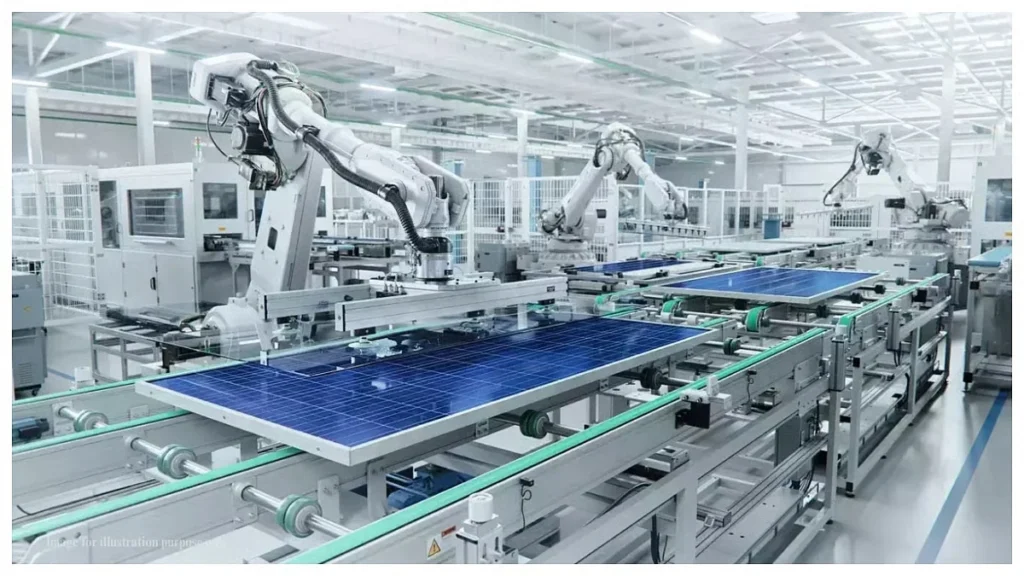Jupiter Renewables, which is quickly establishing itself as a leader in the production of solar modules and cells, would invest Rs 2,700 crore to build a solar cell manufacturing facility in Andhra Pradesh, making it the third business to do so. According to a state government order approving the investment, Jupiter Renewables, a subsidiary of Kolkata-based Jupiter International, intends to invest Rs 2,700 crore to establish a 4.8 gigawatt (GW) solar photovoltaic (PV) cell and 1.5 GW module manufacturing facility at Rambilli in Anakapalli district.
According to the directive, the project, which will be implemented in two stages (Phase 1 would cost Rs 1,504 crore and Phase 2 will cost Rs 1,196 crore), has the potential to create 2,216 jobs.

According to the statement, Phase 1 of the 2.4 GW solar PV cell and 1.5 GW solar PV module manufacturing project is scheduled to be put into service by March 2026, while Phase 2 of the 2.4 GW solar cell facility is expected to be operational by July 2026.
Established leaders like Gujarat, Rajasthan, and Tamil Nadu are now facing competition from Jupiter, the third business to establish a solar manufacturing center in the state.
Investments in the renewable energy sector have increased dramatically in the state since the N. Chandrababu Naidu administration took office last year.
Indosol had previously received approval for an investment of Rs 69,000 crore in a vertically integrated solar PV manufacturing facility.
Also check:- Next year, Apple may launch smart glasses to compete with Google and Meta
Premier Energies is also making investments in the state in two stages: the first would involve the production of 5 GW ingots and solar wafers, costing Rs 1,742 crores, and the second will involve the production of 8 GW solar cells, costing Rs 4,200 crores.
According to industry sources, talks are also underway with other top solar producers.
This action supports the state’s ambitious intentions to develop into a hub for renewable energy, with the goal of luring investments totaling Rs 10 lakh crore and generating over 7.5 lakh employment in the clean energy industry.
To boost indigenous solar production, India is enacting non-tariff barriers (NTBs), specifically aimed at Chinese imports. Enforcing the Approved List of Models and Manufacturers (ALMM) and requiring the use of domestically produced solar cells in government projects beginning in June 2026 are important steps. These actions are intended to increase export possibilities, decrease geopolitical reliance, and increase local capacity.
Andhra Pradesh is increasing incentives for solar cell makers in order to capitalize on the impending import restriction.
According to the ruling authorizing Jupiter’s investment, the state government has given the business a unique set of incentives. Among these is the in-principle clearance for the concessional rate of Rs 50 lakh per acre for the allocation of 142 acres of land (Phase 1: 87 acres and Phase 2: 55 acres).

